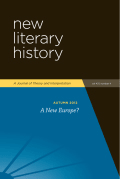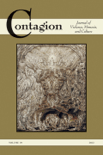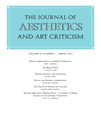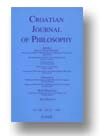
ANGELAKI-JOURNAL OF THE THEORETICAL HUMANITIES
Scope & Guideline
Navigating the Complexities of Literature and Thought
Introduction
Aims and Scopes
- Philosophical Inquiry:
The journal emphasizes deep philosophical explorations, particularly through the works of influential thinkers such as Jacques Derrida and Michel Serres. It seeks to interrogate concepts of existence, ethics, and the human condition. - Interdisciplinary Approaches:
'Angelaki' embraces an interdisciplinary methodology, integrating insights from literature, psychoanalysis, ecology, and political theory to enrich its analyses and discussions. - Crisis and Contemporary Issues:
A consistent theme in the journal is the examination of crises—be they environmental, social, or existential—through a critical lens that seeks to understand their implications for humanity and culture. - Aesthetics and Representation:
The journal often investigates the role of aesthetics in shaping human experience, focusing on how art, literature, and cultural narratives reflect and influence societal values and ethical considerations. - Witnessing and Testimony:
Exploring concepts of witnessing, testimony, and their ethical dimensions is a hallmark of the journal, particularly in the context of contemporary trauma and historical narratives. - Theoretical Innovations:
The journal is a space for theoretical innovations, often challenging traditional paradigms and proposing new frameworks for understanding human experience and societal structures.
Trending and Emerging
- Environmental Humanities:
Recent publications increasingly focus on the environmental humanities, exploring the intersections of ecology, ethics, and human existence, particularly in light of the Anthropocene. - Posthumanism and Non-Anthropocentrism:
There is a growing emphasis on posthumanist theories that challenge anthropocentric views, exploring the relationships between humans and non-human entities in a more interconnected world. - Ethics and Responsibility:
A heightened interest in ethical considerations, particularly in relation to biopolitics, community, and responsibility, is evident, reflecting a societal concern for moral dimensions in contemporary life. - Aesthetic Witnessing:
The concept of aesthetic witnessing is gaining traction, focusing on how art and literature serve as forms of testimony in addressing trauma and historical injustices. - Digital Humanities and Technology:
The integration of digital humanities and the impact of technology on contemporary thought and culture are emerging themes, highlighting the relevance of digital discourse in theoretical inquiries.
Declining or Waning
- Traditional Humanism:
There appears to be a waning interest in traditional humanist perspectives, especially those that do not engage with contemporary crises or the complexities of post-humanist thought. - Purely Historical Analyses:
Papers focusing exclusively on historical analyses without connecting to current theoretical debates or contemporary issues are becoming less frequent, indicating a shift towards more relevant and applied theoretical frameworks. - Static Philosophical Doctrines:
There is a noticeable decrease in articles that adhere strictly to static philosophical doctrines, as the journal increasingly favors dynamic and evolving theoretical discussions that reflect current social realities. - Conventional Literary Criticism:
Conventional approaches to literary criticism that do not incorporate broader theoretical implications or interdisciplinary connections are appearing less frequently, suggesting a move towards more innovative and integrative methods.
Similar Journals

NEW LITERARY HISTORY
Navigating the Intersection of Literature and CultureNEW LITERARY HISTORY is a premier journal in the field of Literature and Literary Theory, published by Johns Hopkins University Press. With an impact factor that places it in the prestigious Q1 quartile of academic publishing, this journal stands out as a leading voice in literary scholarship. Since its inception in 1983 and through its convergence years until 2024, NEW LITERARY HISTORY has been at the forefront of critical debates, offering innovative theoretical frameworks and historical perspectives on literary studies. The journal is indexed in Scopus, ranking in the top 3% of literature publications globally (Rank #28/1106), making it an essential resource for researchers, professionals, and students alike. Although it operates under a traditional access model, the unparalleled quality of its content ensures that it remains a vital platform for disseminating cutting-edge research and fostering intellectual dialogue within the humanities. Explore the rich and dynamic world of literary theory through NEW LITERARY HISTORY and contribute to the ongoing exploration of literature's impact on culture and society.

Contagion-Journal of Violence Mimesis and Culture
Engaging with the Cultural Reflections of Human AggressionContagion: Journal of Violence, Mimesis and Culture is a premier academic journal published by Michigan State University Press, dedicated to exploring the intricate relationships between violence, cultural representation, and mimesis. With an ISSN of 1075-7201 and an E-ISSN of 1930-1200, this journal serves as a conduit for scholarly discourse in fields such as Cultural Studies, Literature and Literary Theory, Philosophy, Religious Studies, and Sociology and Political Science. Despite its classification in quartiles Q4 and Q3 in various academic ranks, this journal is pivotal for those investigating the deeper implications of violence in cultural contexts, providing insights that resonate across disciplines. It has converged its thematic focus from 2010 to 2024, addressing critical and contemporary issues surrounding mimesis and societal reflection. While currently not available as an open-access publication, it offers valuable access options for a diverse readership, including researchers, professionals, and students, committed to understanding the complexities of human behavior through the lens of culture and violence.

JOURNAL OF AESTHETICS AND ART CRITICISM
Unveiling Insights in Music, Philosophy, and Visual ArtsThe Journal of Aesthetics and Art Criticism, published by Oxford University Press, stands as a premier platform for scholarly discourse in the realms of music, philosophy, and the visual and performing arts. Established in 1996 and continuing through 2024, this journal has achieved remarkable recognition, being ranked in the Q1 category across several disciplines, and securing prestigious positions in various Scopus rankings: 29th in Music, 50th in Visual Arts and Performing Arts, and 151st in Philosophy, showcasing its essential contribution to arts and humanities scholarship. While not an open-access journal, its rich repository of articles offers invaluable insights for researchers, professionals, and students alike, fostering a deeper understanding of aesthetics and critical theory. The journal's commitment to interdisciplinary approaches opens pathways for innovative dialogue, making it an indispensable resource for anyone engaged in the study and appreciation of the arts.

Rivista di Estetica
Unlocking the Richness of Aesthetic DiscourseRivista di Estetica is a renowned academic journal published by ROSENBERG & SELLIER, dedicated to the exploration and discussion of aesthetic theory and practice. Since its establishment in 1966, the journal has been a significant platform for philosophers, artists, and scholars, contributing to the vibrant discourse within the field of Philosophy. With an impact factor that reflects its scholarly influence, Rivista di Estetica is categorized in the Q3 quartile of 2023, ranking 343 out of 806 in the Scopus database under Arts and Humanities: Philosophy. Recognizing the importance of accessibility in academia, the journal has been Open Access since 2014, allowing an expansive audience to engage with cutting-edge research and critical essays. Based in Turin, Italy, this journal invites researchers, professionals, and students alike to contribute to its pages, fostering a rich dialogue on artistic expression and aesthetic inquiry.

REVUE PHILOSOPHIQUE DE LA FRANCE ET DE L ETRANGER
Engaging Minds with Timeless Philosophical QuestionsREVUE PHILOSOPHIQUE DE LA FRANCE ET DE L'ETRANGER is a distinguished academic journal published by PRESSES UNIV FRANCE, focusing primarily on the field of philosophy. Established in 1949 and continuing its legacy into 2023, this journal serves as a vital platform for scholarly dialogue and exploration of philosophical ideas that transcend national boundaries. While it currently holds a Q4 ranking in the philosophy category according to the latest Scopus assessments, its contributions remain significant in fostering a comprehensive understanding of various philosophical discourses. Based in France, at 6 AVENUE REILLE, 75685 PARIS CEDEX 14, this journal provides an essential resource for researchers, professionals, and students alike, despite not being an open-access publication. Each issue encourages a deeper engagement with contemporary philosophical thought while contributing to the academic community's ongoing discussions on fundamental philosophical questions.

Croatian Journal of Philosophy
Advancing the Frontiers of Philosophical ThoughtCroatian Journal of Philosophy is a distinguished academic platform dedicated to the advancement of philosophical discourse, published by KRUZAK D O O. With an ISSN of 1333-1108 and an E-ISSN of 1847-6139, this journal has been a key player in the field since its inception in 2008, continuing to progress through its converged years until 2024. Recognized for its scholarly contributions, it holds a prestigious placement in Q3 within the philosophy category for 2023 and ranks #571 out of 806 in Scopus, reflecting its engagement with a broad spectrum of scholarly discussions and ideas. Though it operates without an Open Access model, the journal remains a vital resource for researchers, professionals, and students who are keen to explore contemporary and traditional philosophical issues from diverse perspectives. The journal's commitment to expanding the boundaries of philosophical inquiry emphasizes the significance of interdisciplinary dialogue, making it a reputable choice for those seeking to deepen their understanding of philosophical thought.

Filosofiya-Philosophy
Engaging Minds, Enriching IdeasWelcome to Filosofiya-Philosophy, an esteemed academic journal dedicated to advancing the field of philosophical inquiry. Published by NATSIONALNO IZDATELSTVO AZ BUKI, this journal aims to foster scholarly exchange and promote critical discussions on various philosophical themes and issues, including but not limited to metaphysics, ethics, logic, and epistemology. With its commitment to rigorous research and thought-provoking analyses, Filosofiya-Philosophy seeks to engage researchers, professionals, and students alike, enriching the discourse surrounding philosophical studies. Although currently not an open-access journal, it provides valuable insights that are crucial for the continuous exploration of philosophical ideas. Based in Sofia, Bulgaria, it plays a vital role in the dissemination of philosophical knowledge, inviting submissions from around the globe to enhance its academic community and further its impact in the realm of philosophy.

Co-herencia
Fostering a vibrant platform for emerging ideas in the arts.Co-herencia, an esteemed academic journal published by UNIV EAFIT, is dedicated to advancing the fields of History, Literature and Literary Theory, Music, Philosophy, as well as the Visual Arts and Performing Arts. Since its launch as an Open Access journal in 2004, it has provided a platform for innovative research and interdisciplinary dialogue, facilitating the dissemination of knowledge from its base in Medellín, Colombia. With a commendable range of Scopus rankings, including a Q2 category in Literature and Literary Theory and Visual Arts and Performing Arts, Co-herencia is recognized as a vital resource for scholars aiming to explore cultural narratives and theoretical frameworks. It not only enriches academic discourse but also serves as a significant conduit for emerging ideas that connect art, culture, and social consciousness. Researchers, professionals, and students alike will find Co-herencia a necessary addition to their scholarly pursuits, emphasizing its critical role in the evolving landscape of the arts and humanities.

Teksty Drugie
Fostering Critical Thought in the Arts and HumanitiesTeksty Drugie is a premier academic journal dedicated to the field of Literature and Literary Theory, published by the Polish Academy of Sciences, Institute of Literary Research. With its issuance beginning in 2008 and extending intermittently to 2020, this journal has been a significant contributor to literary scholarship in Poland and beyond. The journal holds a commendable Q2 ranking in its category for 2023, indicating its influential status amongst peers in the Arts and Humanities realm, and an impressive Scopus rank of #736 out of 934 in the Literature and Literary Theory domain, with a 21st percentile ranking. Researchers and students will find this journal invaluable for its rigorous academic standards and insightful contributions to contemporary literary discourse. While traditionally available through subscription, Teksty Drugie remains an essential resource for those engaged in the study of literature, offering critical theoretical perspectives and a forum for scholarly debate. The journal is located at ul. Nowy Świat 72, Pałac Staszica, Room 1, Warszawa 00-330, Poland.

Enrahonar-Quaderns de Filosofia
Advancing philosophical discourse for a global audience.Enrahonar-Quaderns de Filosofia, published by Universitat Autònoma de Barcelona, stands as a significant academic journal in the field of Philosophy, offering open access to a diverse range of philosophical inquiries since its establishment in 1997. With an ISSN of 0211-402X and E-ISSN 2014-881X, it serves as a crucial conduit for scholars to disseminate their research globally. Positioned in the Q3 quartile of Philosophy journals according to 2023 metrics, and ranking #417 out of 806 in Scopus, it reflects a solid standing within the academic community. The journal is committed to advancing philosophical discourse by encouraging critical engagement and interdisciplinary collaboration, ultimately fostering a vibrant dialogue among researchers, professionals, and students. Located in Cerdanyola del Vallès, Barcelona, Spain, it aims to contribute to the European and global philosophical landscape by supporting innovative and rigorous scholarship through its accessible platform.